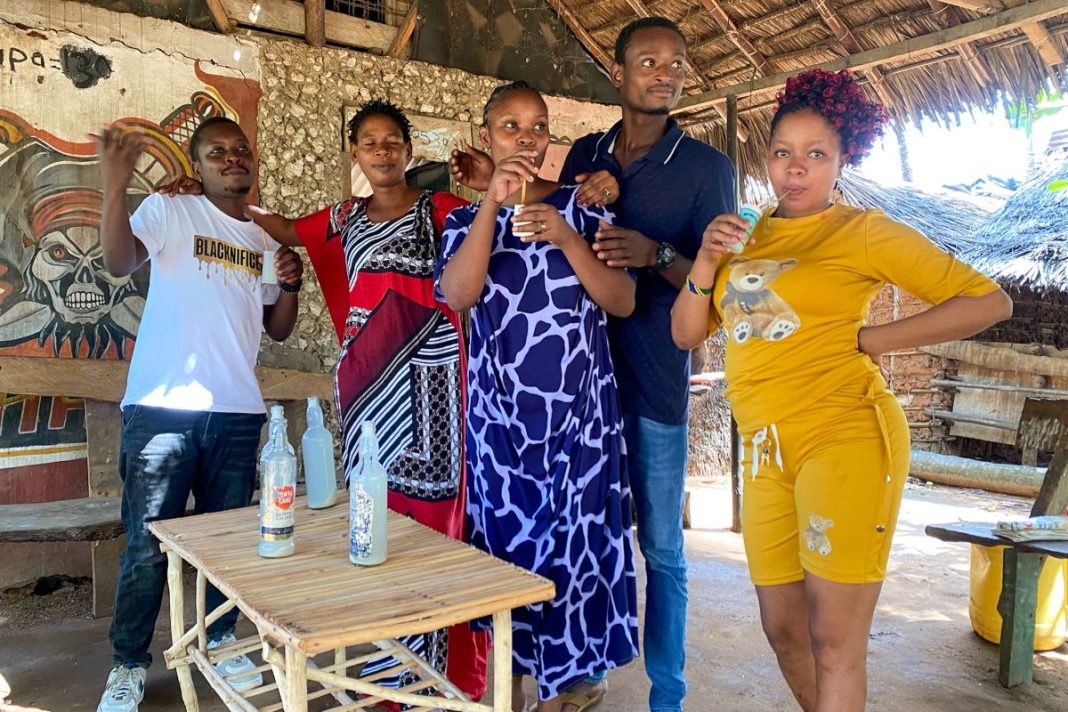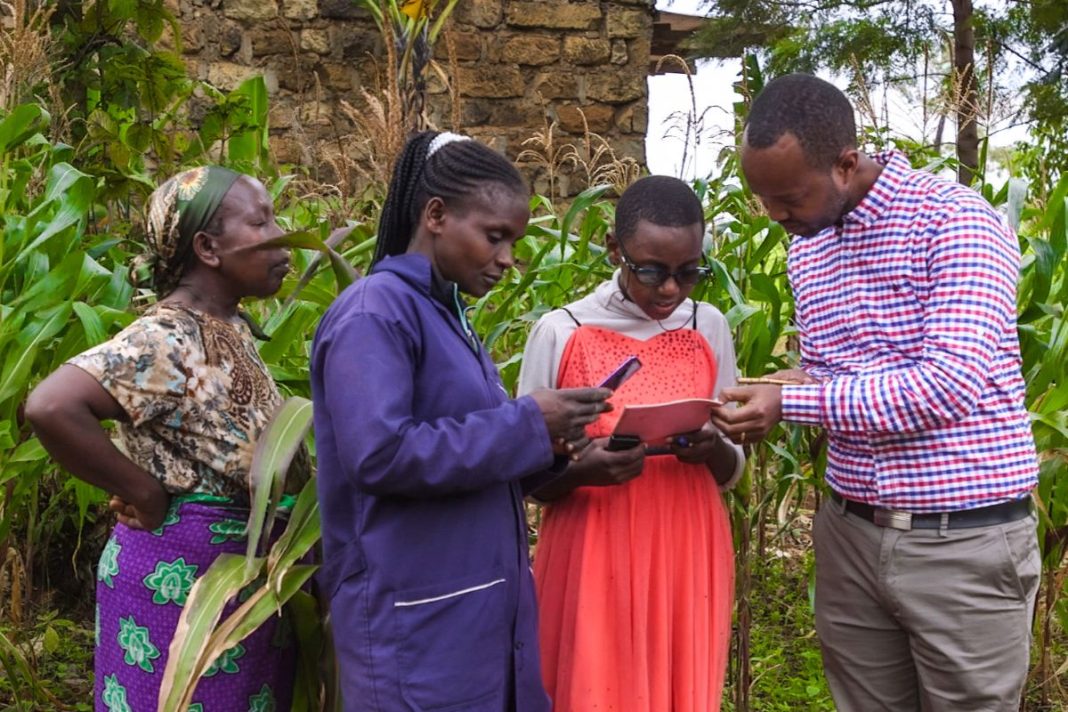On the slopes of Mount Elgon, where Uganda and Kenya meet in a region of extinct volcanoes, elephant highways and bamboo forests, a locally-cherished dish known as malewa — dried and smoked bamboo shoots — has taken root as an exotic export, called malewa. Once a ritual food of the Bagisu people, malewa’s popularity has jumped borders and now, continents.
Its journey could be seen as one that mirrors the aspirations of the East African Community (EAC) and tells a compelling story of free movementa and food diplomacy. More importantly, perhaps, it is also the story women’s economic empowerment.
Today, the malewa found on tables in Nairobi, Mwanza, Kigali, Juba, and Dar es Salaam, not only as a nostalgic dish but also as a symbol of East African identity. Its migration tells a story of intra-African mobility—one in which indigenous food travels far, thanks to the efforts of women who harvest, prepare, trade, and export it.
Malewa and the East African Common Market
Since the EAC’s Common Market Protocol in 2010, the region has aimed to create a single economic space promoting the free movement of goods, services, capital, and people. For small-scale producers and traders — especially women — this has opened new doors. Malewa is one of the many traditional products that have benefited from this integration.
“The free movement of agricultural goods like malewa has fostered cultural unity and economic opportunity,” said John Mulimba, Uganda’s State Minister for Foreign Affairs and Regional Cooperation. He added that regional trade is helping create cross-border networks of producers, traders, and consumers who keep local traditions alive while expanding their market reach.
The East African Customs Union (2005), the Common Market (2010), and the Monetary Union Protocol (2013) have significantly reduced trade tariffs, visa requirements, and transaction costs.
These policy instruments have facilitated smoother trade flows and given traditional products like malewa a new lease of life. Informal cross-border traders, the majority of whom are women, are now increasingly recognised as key agents in regional economic integration.
According to a Uganda Revenue Authority officer at the Uganda-Kenya Busia border post, who talked to this writer on condition of anonymity, “Many strides have been made since the integration process with achievements of the customs union established in 2005, common market in 2010 and the signing of the monetary union protocol in 2013.”
He added that, “The cooperation has brought forth advantages like the reduction of transaction costs of local products like malewa, creation of larger markets, it has heightened the stimulation of investing and industrialisation, and establishment of social development that has led to addressing peace and political stability in the region.”
Women at the Heart of Malewa’s Migration
At the centre of malewa’s success are women like Irene Wabule Walimbawa, who oversees the sorting and packing of malewa destined for export. Women are deeply involved in every stage of the value chain—from harvesting bamboo shoots on steep slopes, to processing, smoking, drying, and selling the final product in urban markets. In Mbale, Jinja, and Sironko, entire communities have organized informal women’s collectives that coordinate harvesting and drying schedules to meet the growing demand.
Yet, this work is not without risks.
“During the rainy season, loose soils on the mountain can be deadly,” said Sylvia Namono of Sironko, a district in eastern Uganda.
Despite the dangers, she continues harvesting and preparing malewa, which she sells at local and regional markets.
“It is how I feed my family,” she added.
The bamboo must be harvested at a specific age and cured quickly to prevent mold, requiring both expertise and physical resilience.
Many of these women have found ways to turn traditional food knowledge into economic agency. In Mbale, where malewa is a culinary staple, women-led cooperatives are packaging it for sale in supermarkets and restaurants across Uganda and Kenya. Their branding includes biodegradable packaging, recipe inserts, and contact information for repeat buyers. Some women have begun training others in food safety and quality assurance, building a new generation of agro-entrepreneurs rooted in indigenous knowledge.

From Ceremonial Food to Regional Staple
Traditionally served during imbalu (Bagisu circumcision rituals) and weddings, malewa has long been a symbol of unity and transition. “It was believed to make boys brave,” says Mr. Abubakr Dawa, a 75-year-old elder. Now, its meaning has evolved. With its distinct flavor, evocative of forest mushrooms, and compatibility with staples like millet and sweet potatoes, malewa has become a regional comfort food.
The unity among the Bagisu in Uganda, the Bakusu and Luhya people has managed to popularise the consumption and sale of malewa in Kenyan big cities that include Nairobi, Bungoma, Kakamega, Nakuru, and even Mombasa.
“I first tasted malewa at a wedding in Mbale,” says Monica Wangari from Kenya. “Now I always ask friends to bring some. It reminds me of our own forgotten traditional dishes.”
This resurgence of culinary heritage is also shaping regional identity.
“Malewa has become more than food,” said Steven Masiga, spokesperson for the Inzu ya Bamasaba cultural institution, set on the slopes of Mount Elgon. “It connects people through a shared cultural memory and taste.”
Expanding to Global Horizons
While malewa is thriving in East Africa, its reach now extends into Europe. John Kariuki Mwangi, a Nairobi-based businessman and representative of the Slow Food Foundation for Biodiversity, is leading efforts to introduce malewa in Germany, France, Italy, and Switzerland.
They are being sold at Earth Markets retailers. Found in more than 24 countries after opening in Montevarchi, Italy in 2004, Earth Markets have become vibrant meeting points where local producers sell produce and low processed foods directly to consumers at fair prices. Slow Food Earth Markets in Uganda are part of the global “Slow Food” movement and aim to promote good, clean, and fair food.
“Through Earth Markets, we offer seasonal local foods like malewa at modest prices,” said Mwangi. “But more importantly, we create spaces for community exchange and education.”
Support from the EU has helped with product branding, certification, and export logistics. Export hubs in Nairobi coordinate shipments to European markets, while women in Uganda continue to harvest and prepare the bamboo shoots that form the base of the dish.

Challenges in Harvest and Policy Gaps
Chopped pieces of smoked malewa have been cleaned and are ready for export packing. Phoebe Masongole
Harvesting inside Mount Elgon National Park is strictly regulated.
“We allow controlled harvesting to avoid poaching and habitat destruction,” said Christine Lynn Nakayenze from the Uganda Wildlife Authority. Staff accompany locals during harvest seasons to ensure compliance.
“It’s an intensive work that is quite demanding,” she added, “A fibrous bunch of malewa costs UGX 4,000.” ($1.1)
One bunch of malewa serves about 10 people.
Attempts to grow bamboo in lowland areas have proven difficult.
“The unique mountain ecosystem cannot be easily replicated,” said Richard Wopata, a local leader.
International donors, including the UK and the Netherlands, have supported efforts to domesticate bamboo, but success remains limited.
“Recognition of malewa as an export crop could help formalize its trade and attract investment,” said Uganda’s Trade Minister, Francis Mwebesa.
Programmes like the Buy Uganda Build Uganda (BUBU) policy provide a framework for enhancing local production and value addition.
The Role of Policy and Regional Integration
Uganda’s BUBU policy, alongside the African Continental Free Trade Area (AfCFTA), offers tangible opportunities to boost intra-African trade. By removing trade barriers and simplifying cross-border trade documentation, these initiatives have enabled small-scale, often women-led, enterprises to participate more fully in regional commerce.
Under the AfCFTA, tariffs on most goods are expected to gradually be eliminated, and national standards are being harmonized across African countries. This makes it easier for local products like malewa to find new markets across the continent.
Malewa and Tourism
Uganda’s growing food tourism sector is also driving demand. According to the Uganda Tourism Board, Uganda received 1,371,895 international tourists in 2024. This represents a 7.7 percent increase compared to the 1,274,210 visitors in 2023, which boosted the sector with a significant 25.9 percent revenue surge, with a total of US$1.28 billion earned. Malewa has become a culinary attraction in five-star hotels that host these tourists, such as Mbale Resort, Munyonyo Speke, and Serena Hotel. Malewa is typically eaten as a side dish, or as an appetiser.
Visitors often also encounter malewa at cultural dinners, food expos, and even biodiversity events such as CIAT’s “Biodiversity Bites,” which highlight traditional crops. Though only occasionally featured, malewa’s presence at such gatherings underscores its role in telling Africa’s agricultural and cultural story.
The Future of Malewa
There is a growing consensus that malewa deserves academic and policy attention. John Muyonga and Archileo Kaaya, both professors at Makerere University’s Department of Food Science advocate for research into malewa’s nutritional profile and agricultural potential.
“If we want to ensure food security and preserve indigenous knowledge, we must study and support crops like malewa,” said Kaaya. Research could unlock innovations in cultivation, processing, and marketing that would benefit women and communities along the value chain.
Meanwhile, elders like Dawa continue to tell the origin story of malewa — how early Bagisu migrants, seeking refuge in the mountain’s caves, discovered bamboo shoots as a food source.
“It was survival food,” he said. “But now it is food that connects people.”
A Regional Symbol of Unity and Women’s Labor
In the end, malewa’s migration is a story of resilience and cultural pride. It is a story of women who climb mountains, brave wildlife, dry bamboo shoots in caves, and carry their culture in baskets to distant cities. Through their work, malewa has become a cross-border delicacy, a livelihood, and a political metaphor for pan-African integration.
In a region where migration is often framed through crisis, malewa offers a different lens—one where movement fosters cultural diffusion, solidarity, and shared prosperity.
It is a dish that, in its humble origins and smoky aroma, reminds us that Africa’s borders are not walls, but bridges.
This content is produced for African Women in Media as part of the MOVE Africa project, commissioned by the African Union Commission and supported by the Deutsche Gesellschaft für Internationale Zusammenarbeit (GIZ) GmbH. The views and opinions expressed are those of the author only and do not necessarily reflect those of the GIZ or the African Union. The story was made available by bird story agency as part of a partnership with Women in Media (WIM).






